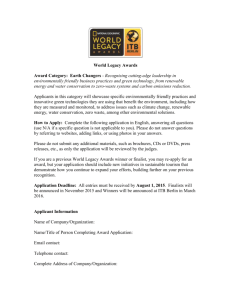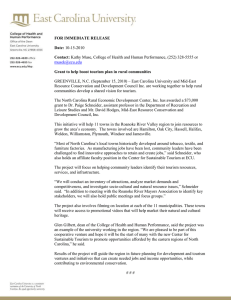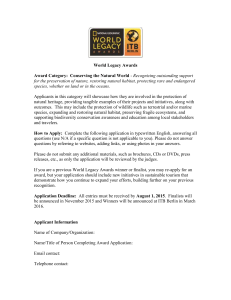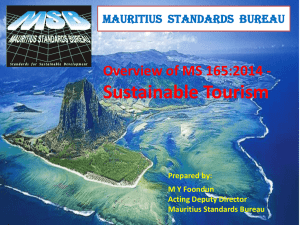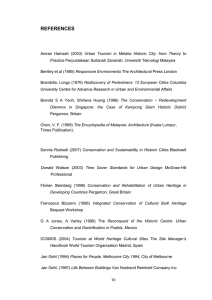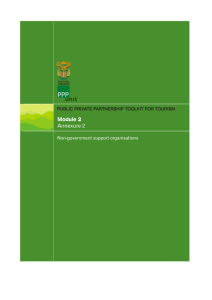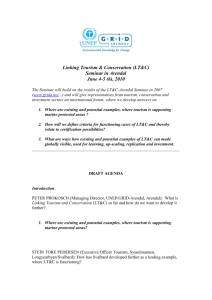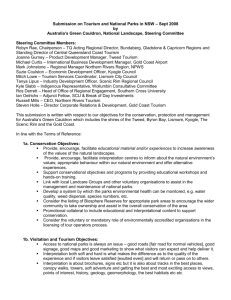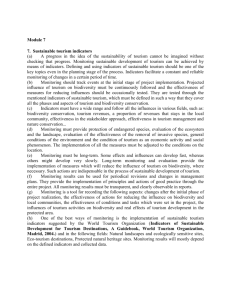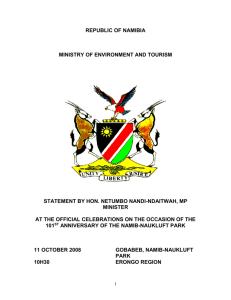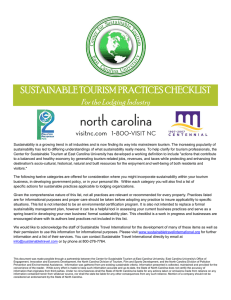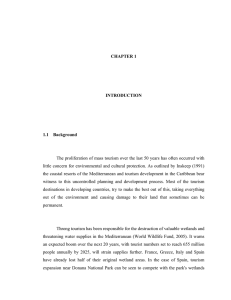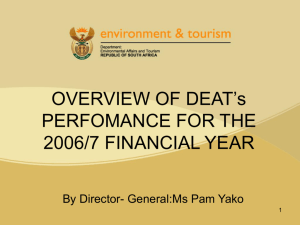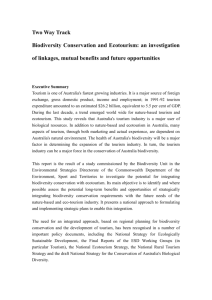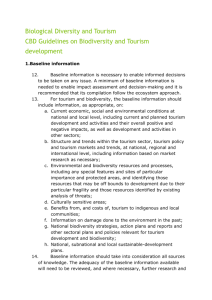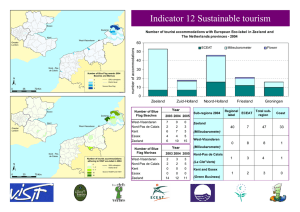Participate in Environmentally Sustainable Work
advertisement
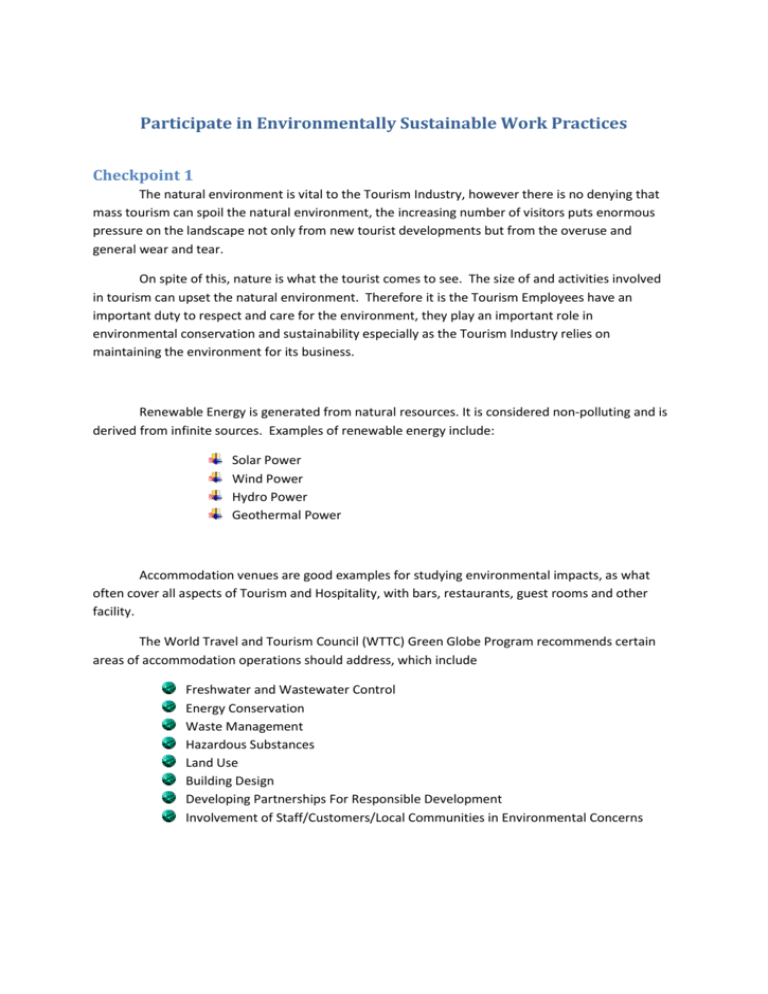
Participate in Environmentally Sustainable Work Practices Checkpoint 1 The natural environment is vital to the Tourism Industry, however there is no denying that mass tourism can spoil the natural environment, the increasing number of visitors puts enormous pressure on the landscape not only from new tourist developments but from the overuse and general wear and tear. On spite of this, nature is what the tourist comes to see. The size of and activities involved in tourism can upset the natural environment. Therefore it is the Tourism Employees have an important duty to respect and care for the environment, they play an important role in environmental conservation and sustainability especially as the Tourism Industry relies on maintaining the environment for its business. Renewable Energy is generated from natural resources. It is considered non-polluting and is derived from infinite sources. Examples of renewable energy include: Solar Power Wind Power Hydro Power Geothermal Power Accommodation venues are good examples for studying environmental impacts, as what often cover all aspects of Tourism and Hospitality, with bars, restaurants, guest rooms and other facility. The World Travel and Tourism Council (WTTC) Green Globe Program recommends certain areas of accommodation operations should address, which include Freshwater and Wastewater Control Energy Conservation Waste Management Hazardous Substances Land Use Building Design Developing Partnerships For Responsible Development Involvement of Staff/Customers/Local Communities in Environmental Concerns Water Usage is a critical issue in Australia, as it is one of the driest continents, on the planet. With the combination of being in the midst of a severe and extended drought and declining water storage levels, water conservation is a serious concern for everyone. Currently within Australia, implementation of ongoing water restrictions and a strong consumer’s awareness program are driving the water conservation message. Considerations for the reasons for water usage and whether it is absolutely necessary to be taken into account. For examples, resorts with golf courses use large amounts of water. Some resorts around the world are now using alternatives such as grey water or artificial grass surfaces such as synthetic grass also requires no pesticides therefore preventing runoff contaminating pristine environment. The Australian legislation regarding compliance with sound environmental practices can be quite complicated. Administer Environmental Legislation through Federal, State and Local Government Levels. At the federal level the “Environmental Protection and Biodiversity Conservation Act 1999, is managed by the Federal Department of Environment, Water Heritage and Arts, overseas matters of national environmental significance. This central piece of legislation relates to matters such as world and heritage listed regions, marine conservation, protection of wetlands, fauna and flora, ecological communities, importation and hazardous waste. State Governments impose further legislation (Acts and Legislation) which concern more to business activities that are subject to licences and permits. They include: State ACT NSW NT QLD SA TAS VIC WA What It Is Environment Protection Act Protection of the Environment Operations Environment Assesment Act Environment Protection Act Environment Protection Act Environmental Management and Pollution Control Act Environment Protection (Amendment) Act Environment Protection Act These laws centre on Land Use Air Waste Water Energy Year 1997 1997 1982 1994 1993 1994 2006 1986 Noise Litter. State governments rely on partnerships with other governing bodies to enforce state environmental legislation.
